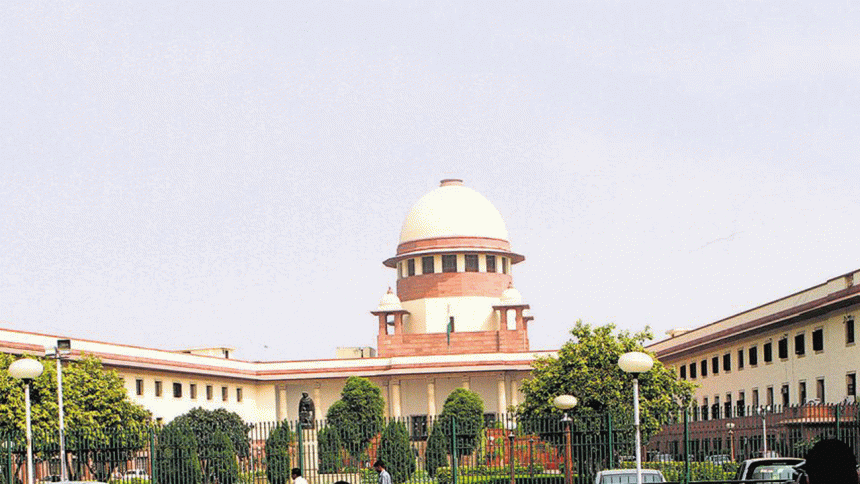Indian SC allows passive euthanasia, ‘living will’

In a landmark ruling, India's Supreme Court today allowed passive euthanasia for terminally ill patients if they give "living will" and under strict guidelines.
Living will is a written document that allows a patient to give explicit instructions in advance about the medical treatment to be administered when he or she is terminally ill or no longer able to express informed consent.
Passive euthanasia is a condition where there is withdrawal of medical treatment with the deliberate intention to hasten the death of a terminally-ill patient.
A five-member bench of the apex court, headed by Chief Justice Dipak Misra, recognising "living will" made by terminally-ill patients who are likely to go into a permanent vegetative state, today laid down guidelines for the same, including who would execute the will and how the nod for passive euthanasia would be granted by a medical board.
The bench said that the guidelines will be in force till legislation is passed by parliament to deal with the issue, our New Delhi correspondent reports.
The bench also comprised justices AK Sikri, AM Khanwilkar, DY Chandrachud and Ashok Bhushan.
Justice Misra's judgement said the heart of the matter is whether law permits the acceleration of death without suffering.
The five-member constitution bench, which had on October 11 last year reserved its verdict on the plea, had earlier indicated during the hearing that it might recognise the execution of 'living will' in cases of passive euthanasia, as right to die peacefully is part of fundamental right to life under Article 21 of the Constitution.
Article 21 provides that "no person shall be deprived of his life or personal liberty except according to procedure established by law."
The apex court, however, had observed that there should be adequate safeguards and implementation of living will would be subject to medical board's certifying that the patient's comatose state is irreversible.
The top court had in 2011 recognised passive euthanasia in Aruna Shanbaug's case by which it had permitted withdrawal of life-sustaining treatment from patients not in a position to make an informed decision.
The government had opposed recognition of 'living will' and said the consent for removal of artificial support system given by a patient may not be an informed one and without being aware of medical advancements. It had cited examples of various countries in disallowing creation of living will by patients.
Advocate Prashant Bhushan, appearing for petitioner NGO Common Cause, had argued that safeguards were needed while taking a decision by medical boards to withdraw life support of a patient.
The bench was hearing the PIL filed in 2005 by the NGO which said when a medical expert is of the opinion that a person afflicted with a terminal disease has reached a point of no return, he should be given the right to refuse life support.
On January, 15, 2016, the government had said the 241st report of the Law Commission stated that passive euthanasia should be allowed with certain safeguards. It had said that on specific occasions, the question of withdrawing supporting devices to sustain cardio-pulmonary function even after brain death, shall be decided only by a doctors' team and not by the treating physician alone.

 For all latest news, follow The Daily Star's Google News channel.
For all latest news, follow The Daily Star's Google News channel. 




Comments